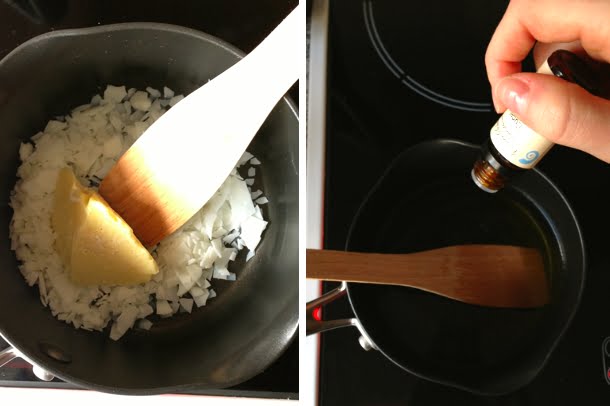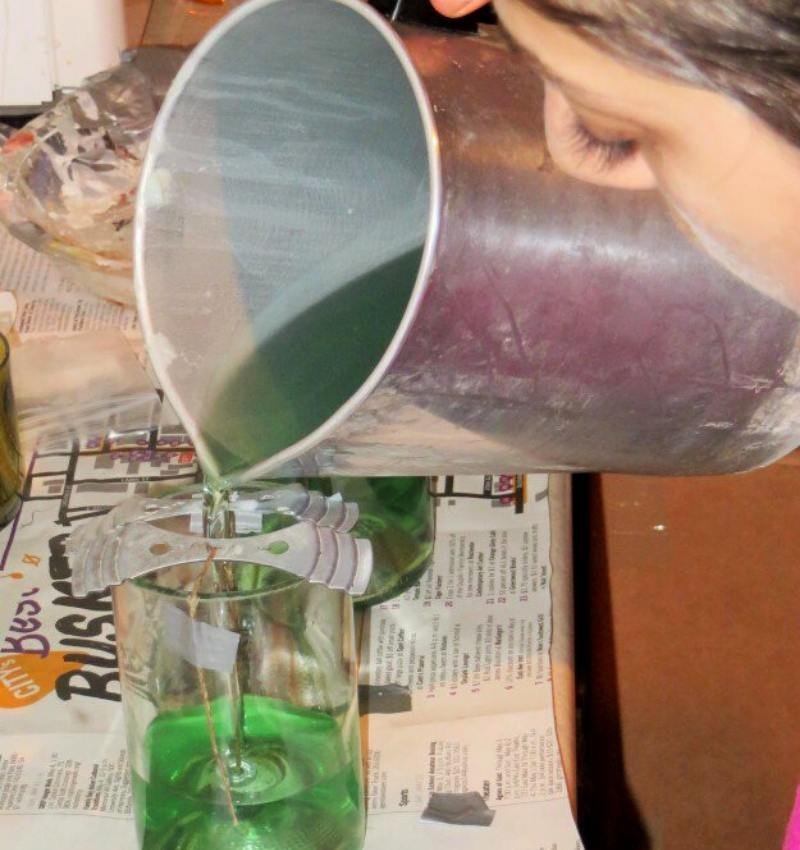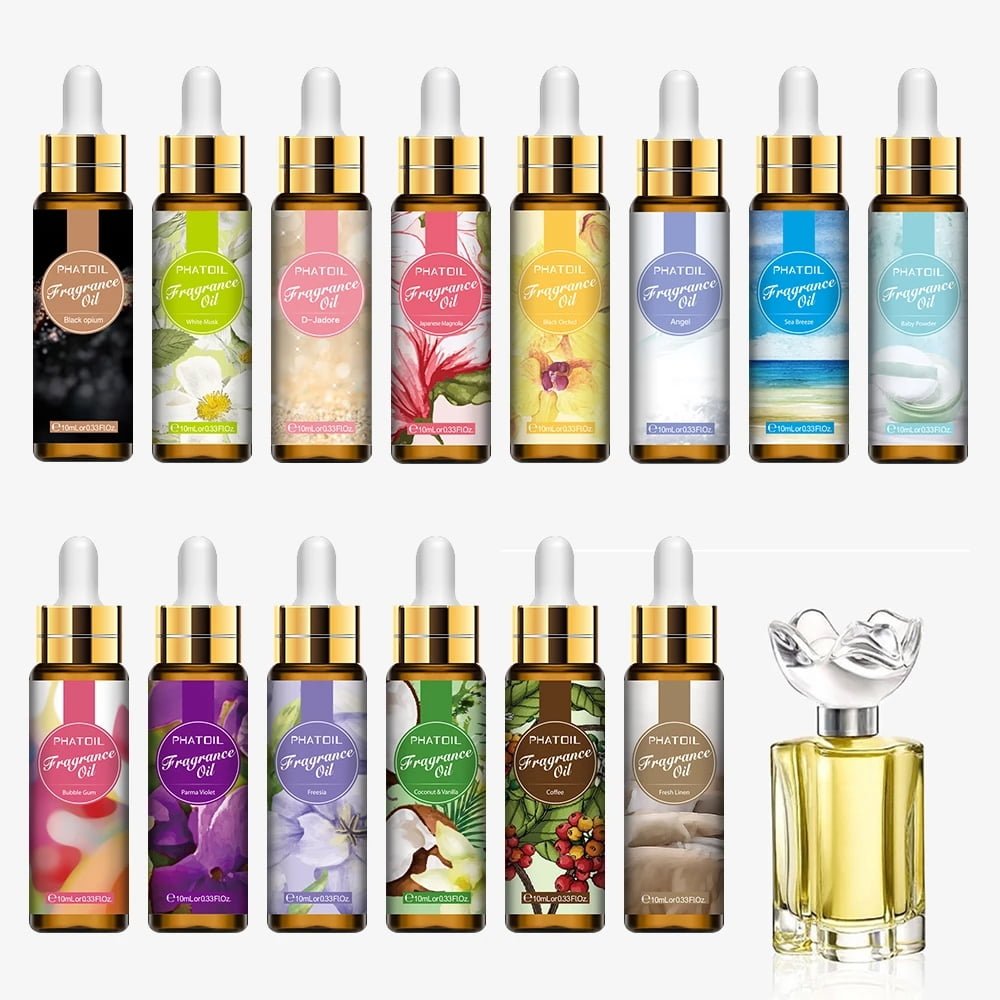Dried flowers can add a touch of beauty and uniqueness to homemade candles, enhancing both their visual appeal and aromatic qualities. If you’re looking to elevate your candle making game, incorporating dried flowers is a wonderful way to do so. This article will guide you through the process of using dried flowers in candle making, from explaining their benefits to providing step-by-step instructions on preparation and incorporation techniques.
Using dried flowers in candle making offers a range of advantages that can take your candles to the next level. Not only do they add a natural, rustic charm to your creations, but each flower also possesses its own distinct properties and aromas that can enhance the overall sensory experience of your candles.
By exploring different types of dried flowers, such as lavender, rose petals, or chamomile, you can discover the unique characteristics they bring and choose those that align with your desired aesthetic and fragrance profiles.
Before diving into the practical aspects, it’s essential to properly prepare your dried flowers for candle making. Cleaning, drying, and preserving them correctly will ensure optimal results when infusing them into candles.
You’ll find a step-by-step guide in this article that will teach you how to clean your dried flowers effectively while maintaining their integrity and aroma. Additionally, we’ll provide useful tips for drying and preserving these delicate blooms so that they retain their beauty throughout the candle-making process.
Once you have prepared your dried flowers appropriately, it’s time to explore different techniques for incorporating them into candles. From embedding them inside the wax to floating them delicately on top or arranging them creatively within translucent containers, there are countless ways to infuse dried flowers into your candle designs. We’ll dive into various methods in this article and inspire you with design ideas to create visually stunning candles.
Using dried flowers in candle making opens up a world of creativity and adds an enchanting touch to any space. Continue reading this article to learn more about selecting appropriate types of wax and vessels, scenting your dried flower candles, troubleshooting common issues that may arise, and discovering an array of design inspiration.
Benefits of Using Dried Flowers in Candle Making
Using dried flowers in candle making offers a multitude of benefits and unique characteristics that can enhance homemade candles.
Firstly, dried flowers add a natural and organic element to candles, providing a visually stunning and aesthetically pleasing touch. They can infuse candles with vibrant colors, delicate textures, and intricate patterns that are sure to catch the eye. Whether you choose to embed the dried flowers within the wax or simply place them on top for decoration, they will undoubtedly bring a sense of beauty and elegance to your candle creations.
Additionally, dried flowers can imbue candles with their own distinct aromas. Each type of flower carries its own unique scent, ranging from calming lavender to romantic rose petals. When combined with the natural fragrance of the candle wax, these floral aromas create a soothing and relaxing atmosphere when the candle is lit. This makes dried flower candles not only visually appealing but also pleasant for the senses.
Furthermore, using dried flowers in candle making allows for a more personalized and customized experience. You have the freedom to select from a wide range of dried flower options depending on your preferences and desired effects. For example, chamomile could be chosen for its calming properties while citrus blossoms could add a refreshing scent. This level of personalization allows you to create candles tailored specifically to your liking or even as thoughtful gifts for loved ones.
| Advantages | Characteristics |
|---|---|
| Visual appeal | Vibrant colors, delicate textures, intricate patterns |
| Aromas | Distinct scents of different flowers that enhance the natural fragrance of the candle wax |
| Personalization | Choose from a wide range of dried flowers to create customized candles |
Types of Dried Flowers to Use
When it comes to using dried flowers in candle making, there are numerous options to choose from. Each type of dried flower brings its own unique properties and aromas, allowing you to create personalized and captivating candles. Here are some popular types of dried flowers that you can consider incorporating into your candle making projects:
- Lavender: Known for its calming and soothing properties, lavender is a popular choice for candles. Its delicate purple petals release a relaxing aroma that can promote a sense of tranquility and help alleviate stress. Lavender buds can be scattered on top of the wax or mixed directly into the melted wax for a visually appealing effect.
- Rose Petals: With their romantic scent and timeless beauty, rose petals add elegance to any candle. The petals can be sprinkled on top of the candle or pressed onto the sides of the container for a stunning visual display. Rose essential oil can also be used to enhance the fragrance further.
- Chamomile: Chamomile’s gentle floral scent brings a sense of calmness and relaxation to candles. The dried chamomile flowers can be infused directly into the melted wax or placed in small sachets that are hung around the candle jar. This not only adds fragrance but also gives your candle a charming rustic look.
- Jasmine: Known for its intoxicatingly sweet fragrance, jasmine is often used to create aromatic candles with an enchanting vibe. Dried jasmine flowers bring both visual appeal and captivating scent when paired with other complementary ingredients like vanilla or ylang-ylang essential oils.
- Calendula: This vibrant yellow flower has a mild, earthy aroma that adds warmth and positivity to candles. Calendula petals can be arranged artistically on top of candles or mixed into granulated wax for a lovely infusion throughout the entire candle.
Remember, these are just a few examples – there are countless other varieties of dried flowers available that you can experiment with to find the perfect combination for your candle making projects. The key is to select flowers that not only appeal to your senses but also complement the theme or mood you want to convey through your candles.
Preparing Dried Flowers for Candle Making
Using dried flowers in candle making adds a beautiful and natural touch to the finished product. However, it is important to properly prepare the dried flowers before incorporating them into candles to ensure optimal results. This step-by-step guide will outline the process of cleaning, drying, and preserving dried flowers for use in candle making.
- Cleaning: Begin by inspecting the dried flowers and removing any dirt, debris, or insects that may be present. Gently brush off any loose particles using a soft bristle brush or a small toothbrush. For particularly delicate flowers, consider using compressed air to remove any dust.
- Drying: After cleaning, it is crucial to ensure that the dried flowers are completely dry before using them in candles. Place the cleaned flowers on a clean surface or tray and allow them to air dry for at least one week. Ensure that they are placed in a cool and well-ventilated area away from direct sunlight or moisture.
- Preserving: To prolong the lifespan of dried flowers in candles and prevent them from deteriorating over time, it is recommended to treat them with a floral preservation spray or DIY mixture. These sprays help maintain the color and texture of the dried flowers while also adding an additional layer of protection against humidity.
| Step | Description |
|---|---|
| Cleaning | Inspect and remove dirt, debris, and insects from dried flowers. |
| Drying | Place cleaned flowers in a cool, well-ventilated area for at least one week. |
| Preserving | Treat dried flowers with a floral preservation spray or DIY mixture to maintain color and texture. |
By following these steps, you can ensure that your dried flowers are well-prepared for use in candle making. Taking the time to clean, dry, and preserve the flowers will result in candles that not only look stunning but also maintain their quality over time. Incorporating dried flowers into your candle making projects adds a unique and natural element that is sure to delight both yourself and others who enjoy your beautiful creations.
Techniques for Incorporating Dried Flowers
One of the most exciting aspects of using dried flowers in candle making is the opportunity to experiment with various techniques to incorporate them into your candles. This not only adds a unique touch to your creations but also creates stunning visual effects that will impress anyone who sees your finished candles. Here are some techniques you can try:
- Embedding Dried Flowers: Embedding dried flowers involves placing them directly into the melted wax when pouring your candles. To do this, simply pour a small amount of melted wax into your container, carefully arrange the dried flowers on top, and then pour the remaining wax over them. The flowers should be fully submerged and evenly distributed throughout the candle. This technique creates a beautiful “frozen in time” effect where the flowers appear suspended within the wax.
- Floating Dried Flowers: If you prefer a more delicate and romantic look, consider floating dried flowers on top of your candles. First, choose smaller or lighter dried flowers that will easily float on the surface of the melted wax. Arrange them gently on top before the wax completely solidifies. You can create a decorative pattern by arranging flowers in a circular or linear design, or simply sprinkle them randomly for a whimsical look.
- Pressed Flower Decals: For those who want even more intricate designs, you can create pressed flower decals to decorate your candles. Start by pressing fresh flowers between heavy books for several weeks until they are completely dried and flattened.
Once ready, lightly brush some craft glue onto the back of each flower and carefully attach them to the outside of your candle containers. Press gently to make sure they adhere well and let them dry completely before pouring in any wax.
By incorporating these techniques into your candle making process, you can create truly captivating candles that showcase the beauty and natural charm of dried flowers. Don’t be afraid to experiment with different combinations and arrangements – let your creativity shine.
Remember to always ensure that the dried flowers are fully dried and free from moisture to prevent any unwanted reactions with the wax. With these techniques, you can truly elevate your candle making skills and enjoy the mesmerizing beauty of dried flowers in your homemade candles.
Choosing the Right Candle Wax and Vessel
Choosing the Right Candle Wax and Vessel:
When it comes to using dried flowers in candle making, selecting the right type of wax and vessel is crucial. Not only will it ensure that your candles burn properly, but it will also complement the beauty and characteristics of dried flowers. Here are some important factors to consider when choosing the candle wax and vessel for your dried flower candles.
- Heat Resistance: One of the key considerations is ensuring that the candle wax has sufficient heat resistance to hold up against the burning process. Dried flowers are delicate, and high temperatures can compromise their appearance and fragrance. Look for waxes with a higher melting point, such as soy wax or beeswax, as they tend to withstand heat better than paraffin wax.
- Compatibility: Consider how well the chosen wax will work with dried flowers. Some waxes may cause discoloration or fading of the flowers, which can affect the overall aesthetic appeal of the candle. It’s essential to choose a wax that is compatible with dried flowers, allowing them to retain their color and shape throughout the burning process.
- Transparency: If you want to showcase the beauty of dried flowers within your candles, consider using transparent or translucent waxes. This will allow the flowers to be visible when the candle is lit, creating a stunning visual effect. Soy-based waxes often have excellent transparency, making them an ideal choice for displaying dried flowers.
- Vessel Selection: The container or vessel you choose for your dried flower candles should not only be aesthetically pleasing but also practical for holding both the wax and flowers securely. Opt for containers made from glass or heat-resistant materials that can withstand prolonged exposure to high temperatures without cracking or shattering.
- Size and Shape: The size and shape of your chosen vessel can also play a significant role in showcasing dried flowers effectively. Consider whether you want a wide-mouthed jar that allows you to arrange the flowers creatively or a narrow container that focuses on the flowers floating vertically within the wax. Experiment with different sizes and shapes to find what best suits your vision.
By carefully considering these factors when choosing the candle wax and vessel for your dried flower candles, you can ensure that they not only look beautiful but also burn safely and effectively. Remember to test different combinations of waxes and vessels to find the perfect match for your dried flower candle making projects.
Scenting Dried Flower Candles
When it comes to candle making, fragrance plays a vital role in creating a captivating sensory experience. Scented candles have the power to evoke emotions, memories, and transform the ambiance of any space. Adding fragrance to dried flower candles allows you to enhance the natural aroma of the flowers and create unique scent combinations. Here are some tips for selecting and blending fragrances to complement your dried flower candles:
- Essential Oils: Essential oils are concentrated plant extracts that provide natural scents. They come in a wide variety of aromas, allowing you to choose scents that complement or enhance the fragrance of your dried flowers. For example, lavender essential oil can heighten the soothing aroma of dried lavender flowers, while rosemary essential oil can add a refreshing twist to candles with dried rose petals.
- Synergy Blending: Experimenting with different combinations of essential oils can result in beautiful scent blends. Consider blending complementary scents such as lavender and chamomile for a relaxing floral aroma or mixing citrus oils like bergamot and lemon for a refreshing burst. Keep in mind that some scents may overpower others, so try small test batches before committing to larger quantities.
- Additives: Apart from essential oils, there are other aromatic elements you can incorporate into your candle making process. For instance, adding dried herbs or spices like cinnamon sticks or cloves can impart subtle yet delightful fragrances to your dried flower candles. You can also consider using botanical extracts or fragrance oils specifically designed for candle making.
- Proper Measurement: As with any ingredient in candle making, it is crucial to measure fragrances accurately to achieve consistent results. Follow recommended usage rates provided by suppliers when adding essential oils or other aromatic elements to your melted wax. This ensures that the fragrance is present but not overpowering, creating a harmonious balance with the dried flowers.
Remember to test your scent combinations and ratios to find the perfect balance between the natural aroma of the dried flowers and added fragrances. Keep in mind that some essential oils may have different flashpoints (the temperature at which they can catch fire), so it’s crucial to select oils that are compatible with candle making.
By exploring various fragrance options and experimenting with combinations, you can create dried flower candles that not only look beautiful but also fill your space with captivating aromas.
Design Inspiration and Ideas
When it comes to incorporating dried flowers into your candle making, the design possibilities are endless. Not only do dried flowers add a natural and rustic touch to candles, but they also allow you to unleash your creativity and create unique pieces of art. Here are some design inspiration and ideas to help you get started on your dried flower candle making journey.
One popular technique is to arrange dried flowers in layers within the candle. Start by pouring a thin layer of melted wax into the bottom of your container and let it cool slightly. Then, carefully place a single layer of dried flowers on top of the wax.
Gently press them down using a skewer or spoon handle so that they adhere to the wax. Repeat this process, adding another layer of melted wax followed by another layer of dried flowers until you achieve your desired look. This method creates a beautiful visual effect when the candle is lit, as the flowers appear suspended within the translucent wax.
Another interesting way to incorporate dried flowers is by creating embedded designs within the candle. To do this, pour a small amount of melted wax into your container and let it cool slightly. Then, place individual dried flowers on top of the cooled wax in any pattern or arrangement you desire.
Carefully pour more melted wax over the flowers until they are fully covered, making sure not to disturb their placement. As the candle burns down and melts around the embedded flowers, they will gradually reveal themselves like hidden treasures.
If you’re feeling adventurous, consider experimenting with different candle shapes or sizes to make your creations even more unique. Instead of using traditional containers like glass jars or votive holders, try pouring your melted wax into unconventional molds such as teacups, vintage tins, seashells, or even cut fruit peels for an organic touch. These unexpected vessels combined with the delicate beauty of dried flowers can create truly stunning and eye-catching pieces.
Remember, the key to successful design with dried flowers is balance and composition. Consider using a variety of flower colors and textures to create visually appealing combinations. Play around with different arrangements, whether it’s scattering petals on top of the wax or grouping flowers in specific patterns for a more structured look. The only limit is your imagination, so let your creativity bloom and enjoy the process of designing unique and beautiful dried flower candles.
Tips for Troubleshooting
When using dried flowers in candle making, it is important to be aware of potential challenges or issues that may arise during the process. By understanding and addressing these difficulties, you can ensure a successful and enjoyable candle making experience. Here are some common troubleshooting tips to help you navigate any problems that may come up:
- Mold Growth: One challenge that may occur when using dried flowers in candles is the growth of mold. This can happen if the flowers were not properly dried or if there is excessive moisture present in the candle wax. To prevent mold growth, make sure to thoroughly dry your flowers before adding them to the candles. Additionally, be sure to use a low moisture content wax and store your finished candles in a cool, dry place.
- Discoloration: Another issue that may arise when incorporating dried flowers into candles is discoloration. Some flowers have natural pigments that can transfer onto the wax, causing it to change color over time. To prevent this, consider using lighter-colored flowers or ones that are less likely to bleed pigment. You can also try applying a fixative spray on the flowers before adding them to the candle wax.
- Combustion: When placing dried flowers in candles, there is a risk of combustion if they come into direct contact with the flame. This can be dangerous and should be avoided. To prevent combustion, it is recommended to embed the dried flowers into the wax rather than having them exposed on top of the candle. This way, they will still add visual interest without posing a fire hazard.
- Sinking or Floating Issues: Depending on the density and weight of your dried flowers, you may encounter problems with them sinking or floating unevenly within your candles. To avoid this issue, consider using small amounts of melted wax as an adhesive to secure the flowers at desired positions within the container before pouring in the remaining wax.
By being aware of these common challenges and taking appropriate measures to address them, you can ensure a smooth and successful candle making process when using dried flowers. Remember, troubleshooting is part of the learning experience, so don’t be discouraged if you encounter any issues – learn from them and keep experimenting to create beautiful candles with dried flowers.
Conclusion
In conclusion, incorporating dried flowers into candle making can offer a range of benefits and unique characteristics to homemade candles. From adding a natural and visually appealing element to infusing delightful aromas, dried flowers can truly elevate the overall experience of candle making.
Throughout this article, we explored the different types of dried flowers that can be used, such as lavender, rose petals, and chamomile, along with their specific properties and aromas. We also provided a step-by-step guide on how to properly clean, dry, and preserve dried flowers for optimal results in candle making. Additionally, we discussed various techniques for embedding or floating dried flowers in candles to create stunning visual effects.
Selecting the right wax and vessel is crucial when working with dried flowers in candle making. The heat resistance and compatibility of the materials should be considered to ensure that the dried flowers remain intact and safe throughout the burning process. Furthermore, we delved into the art of scenting dried flower candles by discussing various essential oils and other aromatic elements that can enhance their natural aroma.
To help inspire readers’ creativity, we showcased design ideas and suggestions for arranging dried flowers within candles, as well as unique candle shapes or sizes they can experiment with. We also provided troubleshooting tips to address common challenges that may arise during the process of using dried flowers in candle making.
Overall, using dried flowers in candle making offers a wonderful opportunity for DIY enthusiasts to create personalized and beautiful candles. We encourage readers to start experimenting with dried flowers in their own projects and unlock new levels of creativity through this captivating art form.
Whether you are looking to make gifts or simply enjoy the therapeutic process of candle making, incorporating dried flowers will undoubtedly add a touch of nature’s beauty to your creations. So gather your supplies, choose your favorite dried flowers, and let your imagination soar.

Welcome to my candle making blog! In this blog, I will be sharing my tips and tricks for making candles. I will also be sharing some of my favorite recipes.





